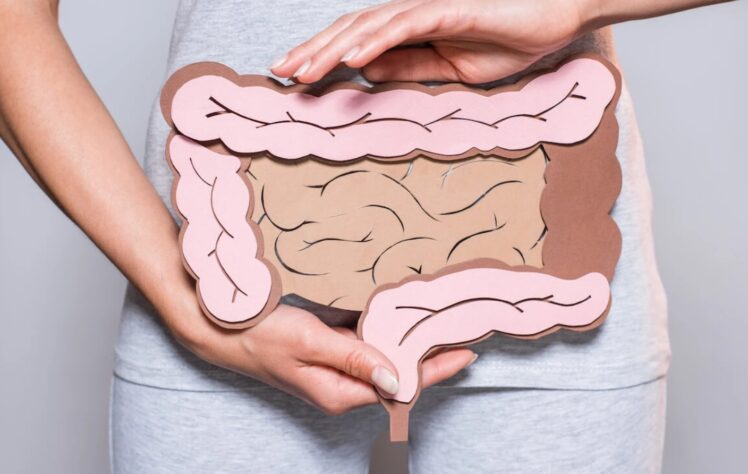If you’re constantly tired, then it could come down to more than your sleeping habits. Lacking a sense of vitality often comes down to poor dietary choices which, over time, lead to a sense of fatigue that is hard to shake off. If you would like to feel a greater sense of vitality each morning after you have rested, then what are the dietary steps you should think about taking? Read on to find out.
Contents
1. Cut Down on Caffeine

Source: medium.com
Many people make up for a lack of vitality by giving themselves a temporary boost. This can be achieved by eating something sugary that the body can turn into energy fast. Another common way is to drink coffee which, of course, contains a stimulant called caffeine.
The problem with caffeine is that it takes some time for the body to process, meaning your natural sleep rhythm can be impaired. Avoid consuming it after midday and cut it out altogether, if you can. If you must have a mug of coffee in the morning to get you going, then opt for an organic bean instead of a regular coffee for your caffeine hit.
Not only do many drinkers prefer the taste and aroma of it, but it can also help you to savor your coffee more, helping you to cut down your intake overall. Drink more water instead, another good tip for boosting vitality and improving overall health.
2. Try an Advanced Nutritional Formula

Source: health.harvard.edu
Advanced nutritional fomulas, such as those produced by Thorne, for example, are more than mere vitamin supplements. People who take a multi-vitamin pill routinely may be helping their health and vitality but these products are not targeted in the way that advanced nutritional formulas tend to be. Why? The main reason is that an advanced formula, although it will contain certain vitamins, will be designed for a specific bodily purpose.
In many cases, choosing the right one can help to boost the sense of vitality people feel. Some are designed to help boost brainpower or muscle health, both important aspects of vitality. However, others are even more focused and provide a means of boosting energy levels, ideal if you are recovering from an illness or simply building up your fitness from a low level.
3. Get Moving More

Source: sixtyandme.com
It might sound obvious at first, but feeling a greater sense of vitality will often lead to feeling more energized, too. The trouble is if you are lethargic in the first place, this can lead to you not wanting to exercise. In other words, a lack of vitality and a lack of physical exercise often go hand-in-hand, one feeding the other in a kind of vicious circle.
There is only one way to break this undesirable state and it means moving as much as you are able. If you are unfit from suffering from a lack of vitality for several months or even years, then don’t think you can start off by running a marathon.
Instead, take things slowly and begin with something as straightforward as a short walk. Anything that leaves you feeling a little breathless will mean the body begins to start producing chemicals in the brain that will stimulate it. This can be good for shifting your mood and making you feel better about the physical activity you’re doing.
Even getting up out of a chair for a few minutes before resting again is helpful if you’re not in great condition. Over time, your physical state should improve along with your sense of vitality. When you exercise more and combine your activities with a healthier diet, the positive effects on well-being can be remarkable.
4. Consume More Folate-Rich Food

Source: canva.com
Folate is just another term that nutritionists use for folic acid. Folate-rich foods are known to be useful for the bodily creation of certain enzymes which assist with digestion. Therefore, you can improve your intake of other foods simply by getting more folate into your diet.
In turn, this should lead to you feeling better fed when you enjoy a meal, making you less likely to snack and graze, habits that can lead to you feeling lethargic since your body is spending more time digesting than it otherwise would.
Folate-rich foodstuffs include cabbage, kale, peas, and spinach but it isn’t only found in green, leafy vegetables. Chickpeas, liver, grapefruits, and limes all contain digestion-enhancing folic acid, too.
5. Take Care of Your Immune System

Source: hellotushy.com
Even when you have a sense of improving vitality and you are taking better care of yourself with your eating and drinking habits, some of the good work can be undone by catching a viral infection. Of course, you can’t avoid common cold viruses entirely but what you can do is make sure your body is better able to handle them so they impact less on your energy levels and overall vitality.
As many people know, Vitamin C is needed by the body’s immune system but eating foods rich in it once you’ve contracted a cold won’t be of much help. Eat citrus fruits and other foodstuffs which have Vitamin C in abundance, such as broccoli, routinely so that your body is prepared whenever you might be exposed to an infection.
Note that some of the natural chemicals in garlic are also good for the immune system and, even better, eating it tends to help people who want lower blood pressure, as well.
Take Away
Feeling greater vitality can be good for your mental and physical health. With just a few adjustments to your lifestyle, you can feel healthier every day. Why not make some changes and see how much better you feel? After all, boosting your vitality isn’t only about feeling more energized but about getting more out of life.
Feeling a greater sense of vitality shouldn’t just make you feel physically stronger and more able but put your mind and spirit in a place where you’ll be able to take on the world on your own terms.
